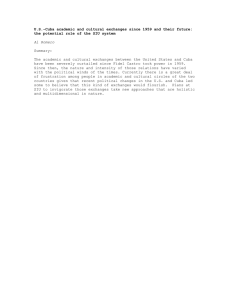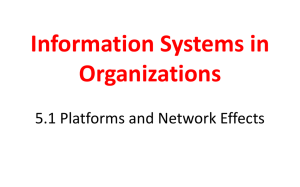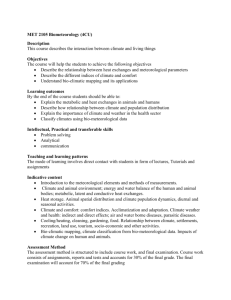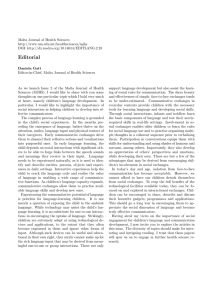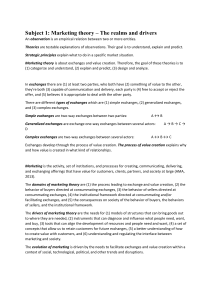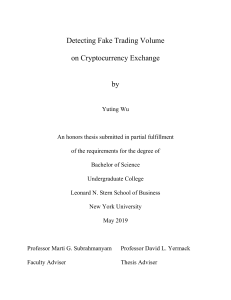Family Exchanges and Health - Summary London 15 May 2009
advertisement
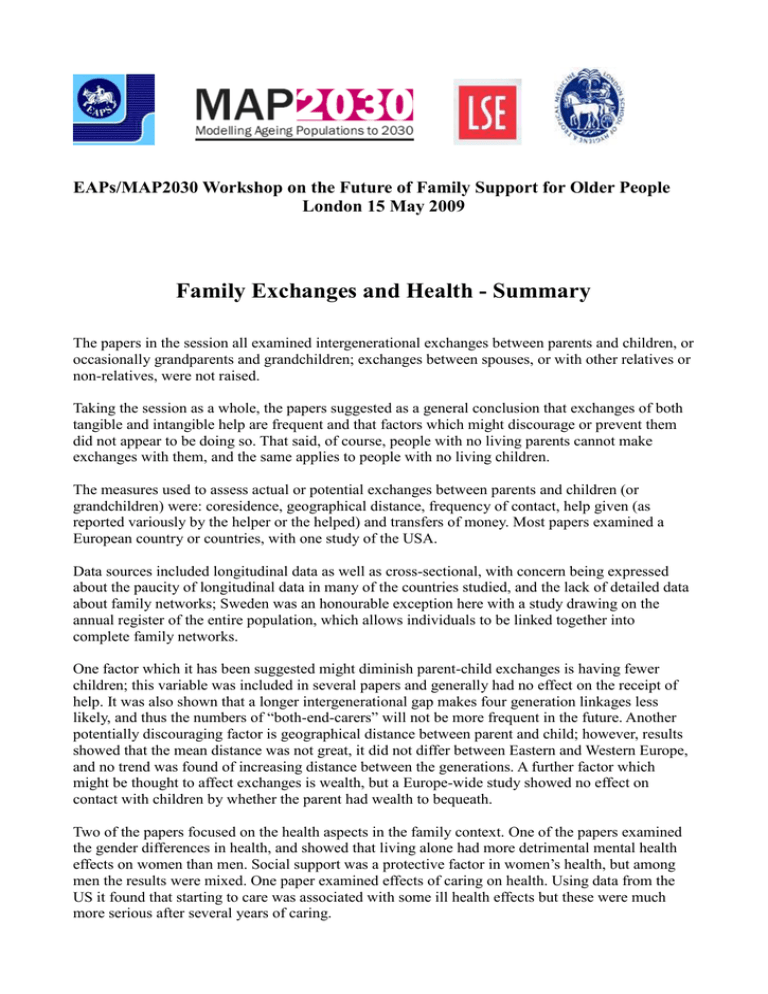
EAPs/MAP2030 Workshop on the Future of Family Support for Older People London 15 May 2009 Family Exchanges and Health - Summary The papers in the session all examined intergenerational exchanges between parents and children, or occasionally grandparents and grandchildren; exchanges between spouses, or with other relatives or non-relatives, were not raised. Taking the session as a whole, the papers suggested as a general conclusion that exchanges of both tangible and intangible help are frequent and that factors which might discourage or prevent them did not appear to be doing so. That said, of course, people with no living parents cannot make exchanges with them, and the same applies to people with no living children. The measures used to assess actual or potential exchanges between parents and children (or grandchildren) were: coresidence, geographical distance, frequency of contact, help given (as reported variously by the helper or the helped) and transfers of money. Most papers examined a European country or countries, with one study of the USA. Data sources included longitudinal data as well as cross-sectional, with concern being expressed about the paucity of longitudinal data in many of the countries studied, and the lack of detailed data about family networks; Sweden was an honourable exception here with a study drawing on the annual register of the entire population, which allows individuals to be linked together into complete family networks. One factor which it has been suggested might diminish parent-child exchanges is having fewer children; this variable was included in several papers and generally had no effect on the receipt of help. It was also shown that a longer intergenerational gap makes four generation linkages less likely, and thus the numbers of “both-end-carers” will not be more frequent in the future. Another potentially discouraging factor is geographical distance between parent and child; however, results showed that the mean distance was not great, it did not differ between Eastern and Western Europe, and no trend was found of increasing distance between the generations. A further factor which might be thought to affect exchanges is wealth, but a Europe-wide study showed no effect on contact with children by whether the parent had wealth to bequeath. Two of the papers focused on the health aspects in the family context. One of the papers examined the gender differences in health, and showed that living alone had more detrimental mental health effects on women than men. Social support was a protective factor in women’s health, but among men the results were mixed. One paper examined effects of caring on health. Using data from the US it found that starting to care was associated with some ill health effects but these were much more serious after several years of caring. The most robust findings arose from a study which examined grandparental assistance from an evolutionary perspective, using a set of hypotheses deriving from the reproductive characteristics of humans as compared with other animals. Of all the grandparents, mothernal grandmother invested most in her grandchildren. As one might expect the findings differed from country to country but no clear regional tendencies were evident except that Southern European countries showed stronger family ties than other areas of Europe. Rachel Stuchbury & Sanna Read London School of Hygiene and Tropical Medicine
